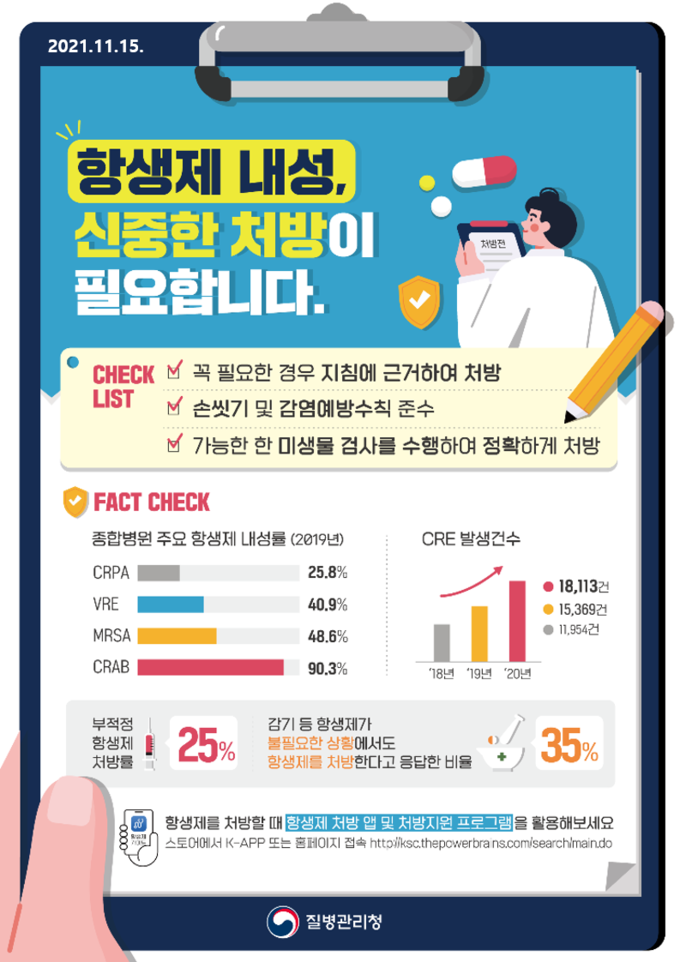
In a bid to preemptively combat the spread of healthcare-associated infections, the Chungcheongnam-do Institute of Health and Environment (Director Jung Geum-hee) announced on the 26th that it will conduct proactive testing for six types of antibiotic-resistant bacteria across 12 medical institutions within the province.
The six targeted antibiotic-resistant bacteria include Carbapenem-resistant Enterobacterales (CRE), Methicillin-Resistant Staphylococcus aureus (MRSA), and Vancomycin-Resistant Enterococci (VRE). These pathogens are known to be significant causes of medical-related infections such as sepsis, pneumonia, bloodstream infections, urinary tract infections, surgical site infections, and multidrug-resistant bacterial infections.
Of particular concern is the increasing prevalence of CRE within the province. It is understood that CRE spreads through direct or indirect contact with infected patients or carriers, as well as through environmental contamination within healthcare facilities. Alarmingly, bacteria producing carbapenem-degrading enzymes can readily transmit their resistance genes to other bacteria, elevating the risk of widespread infection outbreaks within medical settings.
This proactive testing initiative will encompass a total of 12 medical institutions, including four branches of Chungcheongnam-do Medical Center and eight hospitals across seven cities and counties that voluntarily applied to participate.
The Institute of Health and Environment will collect samples from medical equipment, living spaces, and employee work areas within each participating medical institution, both before and after disinfection procedures. These samples will then be analyzed to determine the presence of antibiotic-resistant bacteria.
Should any antibiotic-resistant bacteria be detected, the Institute will promptly notify the relevant medical institution. Subsequently, a customized consultation, involving hygiene management strategies, will be provided in collaboration with the Chungcheongnam-do Infectious Disease Management Support Team.
Director Jung Geum-hee emphasized the critical importance of this initiative, stating, "Healthcare-associated infections not only jeopardize individual health by leading to prolonged hospital stays, complications, and increased antibiotic use but also contribute to a rise in socioeconomic costs due to the burden on the healthcare system."
Director Jung further asserted, "Through this proactive testing for antibiotic-resistant bacteria, we aim to prevent healthcare-associated infections and foster a safer healthcare environment for everyone."
[Copyright (c) Global Economic Times. All Rights Reserved.]



























